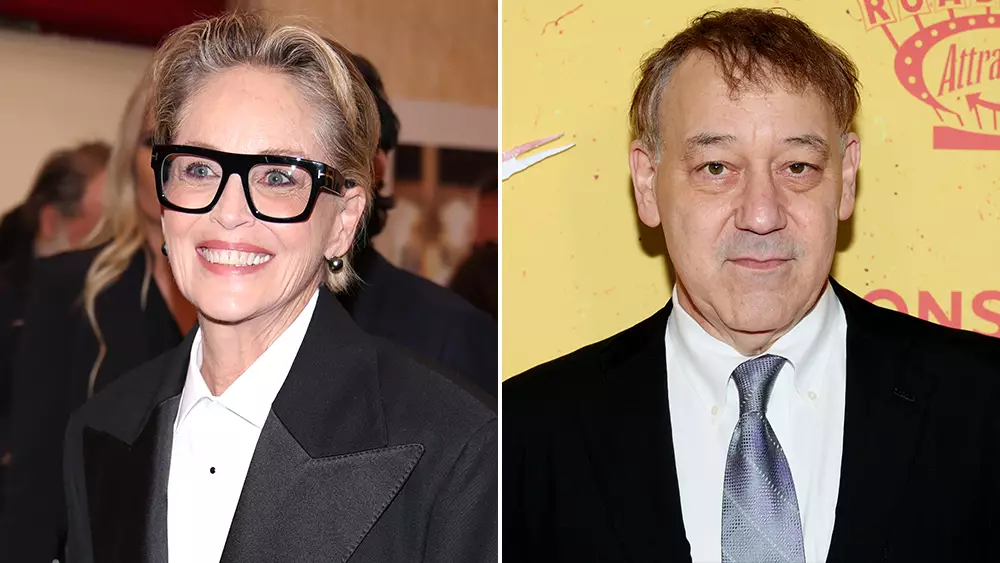Sharon Stone’s candid reflections during a recent Q&A at the Torino Film Festival have provided a rare glimpse into the complexities of navigating the male-dominated landscape of Hollywood. While reminiscing about her experience on the set of her 1995 film *The Quick and the Dead*, Stone emphasized the importance of loyalty and relationship-building in the industry. Her critical assessment of director Sam Raimi, whom she accused of lacking the same familial bonding found in her collaborations with Martin Scorsese, raises significant questions on how personal dynamics inform professional pathways in cinema.
Stone’s observations on loyalty—an attribute she conferred upon Scorsese—underscore the emotional and personal dimensions that often go unnoticed in Hollywood. For Stone, the director-star relationship transcends mere professionalism; it is steeped in mutual respect and gratitude, characteristics she feels were glaringly absent in her experiences with Raimi. This friction between actors and directors touches the systemic issues within the industry, particularly the balance between artistic collaborations and power dynamics.
Despite its lackluster box office performance upon release, *The Quick and the Dead* has transformed into a cult classic, illustrating how audience perspectives can evolve. Set in a lawless town and featuring a strong female lead, Stone’s character is a gunslinger seeking vengeance. This narrative, while often overshadowed by the male heroes in many Westerns, speaks volumes about the shifting paradigms in storytelling.
Stone’s ambition to cast actors like Russell Crowe and Leonardo DiCaprio reveals her foresight in recognizing talent prior to their meteoric rises. In doing so, she cultivated a more diverse cinematic landscape, challenging the traditional narratives overwhelmingly represented in films of that era. However, the film’s initial failure at the box office and critical reception could overshadow its contributions to the genre. Stone’s reflection on its resurgence post-release signals the complex relationship between commercial success and cultural impact.
One of the most poignant aspects of Stone’s recounting revolves around her struggles to transition into directing after producing *The Quick and the Dead*. Her candid commentary on the overt sexism that existed in Hollywood during the 1990s and early 2000s highlights systemic barriers that women continue to face. Stone argued that despite having a solid pitch and script, her efforts were consistently met with rejection due to her gender. This barrier to entry is particularly disheartening given her evident skills and proven track record as a producer.
The notion that more competent female filmmakers were often disregarded by “lesser intelligent” studio executives exposes a troubling dynamic within the industry. Stone’s frustrations echo the sentiments of many women who have faced similar obstacles, illuminating an ongoing struggle against ingrained biases and the necessity for change within Hollywood’s gatekeeping mechanisms. Stone’s choice to pivot her career towards casting signifies a temporary compromise—utilizing her industry knowledge while waiting for the barriers to break down.
Ultimately, Stone’s reflections encapsulate the critical role that loyalty plays in the relationships forged within the filmmaking process. Her ongoing collaboration with Scorsese contrasts sharply with her experience with Raimi, illustrating how trust and recognition can enhance, or conversely, diminish professional partnerships. These dynamics do not only matter on personal levels but also shape the narratives that are put into production.
Through her transparency, Stone challenges us to critique not only the films themselves but also the broader mechanisms that dictate which stories are told and whose voices are given prominence on screen. As Hollywood continues to grapple with its gender equity issues, Stone’s reflections stand as a powerful reminder of the need for respect and acknowledgment, not just among collaborators, but throughout the industry itself.
In a landscape still rife with challenges for women filmmakers, it remains crucial for audiences and industry leaders alike to recognize the talent that often goes unacknowledged. Sharon Stone’s journey epitomizes the ongoing struggle for balance, loyalty, and equality within a historically skewed system, one that is desperately in need of reform.


Leave a Reply